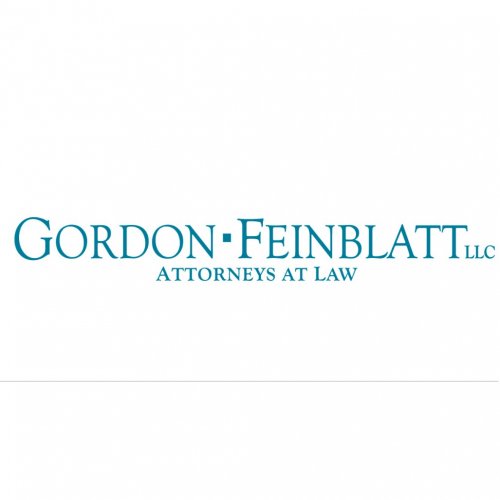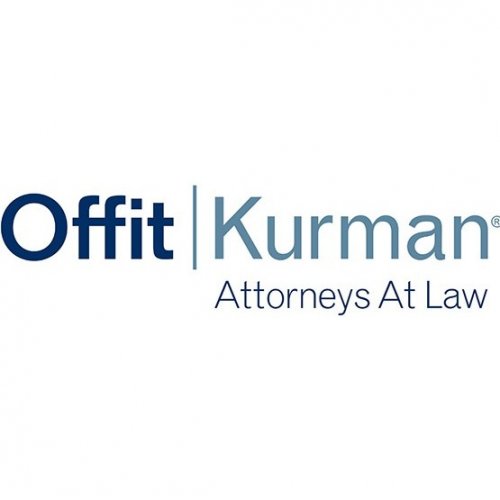Best Nonprofit & Charitable Organizations Lawyers in Baltimore
Share your needs with us, get contacted by law firms.
Free. Takes 2 min.
List of the best lawyers in Baltimore, United States
About Nonprofit & Charitable Organizations Law in Baltimore, United States
Nonprofit and charitable organizations in Baltimore play a crucial role in delivering community services, supporting arts and culture, enhancing education, and more. These organizations are typically set up as 501(c)(3) entities, allowing them to receive tax-deductible donations. The regulation and oversight of such organizations are governed by a combination of federal laws, state statutes, and local regulations. Each organization must adhere to specific legal and operational standards to maintain their nonprofit status and further their mission while ensuring compliance with various legal requirements.
Why You May Need a Lawyer
There are several situations where seeking legal advice may be important for those involved in nonprofit and charitable organizations:
- Setting up a new nonprofit: Legal assistance can help navigate the incorporation process, draft bylaws, and apply for tax-exempt status.
- Compliance with tax laws: Ensuring compliance with IRS regulations and state tax laws is critical for maintaining tax-exempt status.
- Contract negotiations and reviews: Legal review of contracts with employees, vendors, and partners can help prevent disputes.
- Employment law issues: From hiring to termination, nonprofit organizations must comply with employment laws and regulations.
- Board governance: Lawyers can aid in clarifying the roles and responsibilities of board members and preventing conflicts of interest.
- Fundraising regulations: Compliance with state solicitation laws is essential for lawful fundraising activities.
- Litigation: Legal representation may be needed if disputes arise or if the organization faces lawsuits.
Local Laws Overview
Baltimore nonprofit organizations must comply with Maryland state laws and local regulations. Key considerations include:
- Registration requirements with both federal and state authorities to obtain and maintain tax-exempt status.
- Adherence to state-specific fundraising regulations, including registration and reporting requirements for charitable solicitations.
- Understanding local property tax exemptions and all requirements for maintaining those exemptions.
- Compliance with Maryland’s commercial co-venture laws if the nonprofit engages in cause marketing activities.
- Requirements for financial accountability, such as annual reporting to the Maryland Secretary of State and possible independent audits.
Frequently Asked Questions
What is a 501(c)(3) organization?
A 501(c)(3) organization is a type of nonprofit in the United States that is exempt from federal income tax under section 501(c)(3) of the Internal Revenue Code. These organizations are typically charitable, educational, religious, or scientific.
How do I start a nonprofit organization in Baltimore?
Starting a nonprofit involves several steps: choosing a name, filing articles of incorporation with the Maryland Department of Assessments and Taxation, obtaining an Employer Identification Number (EIN), drafting bylaws, and applying for federal tax-exempt status with the IRS.
What are the ongoing compliance requirements for a nonprofit in Baltimore?
Ongoing compliance includes filing annual reports with the Maryland Secretary of State, maintaining accurate financial records, reporting to the IRS annually via Form 990, and adhering to state and federal fundraising laws.
What is the role of the board of directors in a nonprofit?
The board of directors is responsible for overseeing the organization's activities, ensuring that it fulfills its mission ethically and in compliance with the law, and providing financial stewardship.
Are there specific fundraising laws in Baltimore I should be aware of?
Yes, nonprofits must register with the Maryland Secretary of State before soliciting donations and adhere to specific reporting requirements regarding their fundraising activities.
Do I need a lawyer to draft bylaws for my nonprofit?
While not legally required, hiring a lawyer to draft or review bylaws ensures they comply with state laws and effectively outline governance structures.
Can a nonprofit in Baltimore make a profit?
Yes, a nonprofit can generate a profit, but the profits must be reinvested back into the organization’s mission and cannot be distributed to members or directors like a for-profit corporation.
How can I ensure my nonprofit remains tax-exempt?
To remain tax-exempt, your nonprofit must comply with IRS regulations, state filing requirements, avoid significant unrelated business income, and operate exclusively for exempt purposes.
What happens if my nonprofit loses its tax-exempt status?
If a nonprofit loses its tax-exempt status, it may be required to pay income taxes and its donors may not be able to claim tax deductions for their contributions. Legal counsel should be sought to address and rectify the situation.
How do I handle a conflict of interest in my nonprofit?
Nonprofits should have a conflict of interest policy in place, requiring disclosure of potential conflicts and recusing affected parties from discussions and votes related to the conflict.
Additional Resources
Consider these resources for more information and assistance:
- Maryland Secretary of State - Charitable Organizations Division
- Internal Revenue Service (IRS) - Tax Information for Charities & Nonprofits
- The Association of Baltimore Area Grantmakers
- Maryland Nonprofits - A statewide association offering guidance and resources for nonprofits
Next Steps
If you require legal assistance regarding your nonprofit or charitable organization, consider consulting with a lawyer who specializes in nonprofit law. Reach out to local nonprofit associations for referrals or access online directories to find qualified attorneys in Baltimore. Additionally, attending workshops and webinars offered by nonprofit resource centers can provide useful information and networking opportunities.
Lawzana helps you find the best lawyers and law firms in Baltimore through a curated and pre-screened list of qualified legal professionals. Our platform offers rankings and detailed profiles of attorneys and law firms, allowing you to compare based on practice areas, including Nonprofit & Charitable Organizations, experience, and client feedback.
Each profile includes a description of the firm's areas of practice, client reviews, team members and partners, year of establishment, spoken languages, office locations, contact information, social media presence, and any published articles or resources. Most firms on our platform speak English and are experienced in both local and international legal matters.
Get a quote from top-rated law firms in Baltimore, United States — quickly, securely, and without unnecessary hassle.
Disclaimer:
The information provided on this page is for general informational purposes only and does not constitute legal advice. While we strive to ensure the accuracy and relevance of the content, legal information may change over time, and interpretations of the law can vary. You should always consult with a qualified legal professional for advice specific to your situation.
We disclaim all liability for actions taken or not taken based on the content of this page. If you believe any information is incorrect or outdated, please contact us, and we will review and update it where appropriate.












